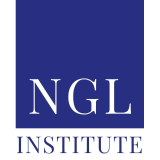This informal CPD article, ‘Career Skills for the Future: How to Thrive in Singapore’s Asset Management Industry’, was provided by Mike Sim, founder of NGL Institute, who provide fund management education.
Career Skills for the Future: How to Thrive in Singapore’s Asset Management Industry
Singapore’s asset management industry is a key pillar of its financial sector, contributing significantly to the nation's economy. With the rise of Variable Capital Companies (VCCs) and evolving financial landscapes, the industry demands a workforce equipped with future-ready skills. Here’s a comprehensive guide on the essential career skills required to thrive in Singapore’s asset management industry, with insights on how to stay competitive in a fast-changing market.
1. Understanding the Asset Management Landscape in Singapore
Singapore has established itself as a leading global hub for asset management, thanks to its stable regulatory environment, strategic location, and government initiatives such as the VCC framework. The industry encompasses various roles, from portfolio management and compliance to operations and client servicing.
To excel in this field, professionals need to stay abreast of evolving regulations, tax incentives like the 13O and 13U schemes, and new fund structures such as VCCs.
Key Insight: The Variable Capital Company (VCC) structure, introduced by the Monetary Authority of Singapore (MAS), has become a game-changer for fund managers. Understanding its operational and compliance requirements is crucial.
2. Core Career Skills for Asset Management Professionals
a) Financial and Analytical Skills
Professionals in asset management must possess strong financial acumen and analytical skills to assess investment opportunities and manage risks effectively. This includes:
- Financial modeling
- Portfolio analysis
- Risk assessment
Actionable Tip: Regularly update your knowledge of financial markets and trends to remain competitive.
b) Regulatory and Compliance Knowledge
Understanding the regulatory framework is essential for ensuring compliance with local laws. This includes knowledge of:
- MAS regulations
- Anti-Money Laundering (AML) policies
- Tax incentives such as 13O and 13U
c) Digital and Technological Proficiency
With the rise of fintech and digital transformation, proficiency in digital tools and platforms is essential. Skills such as data analytics, automation, and cybersecurity are increasingly in demand.
Future Skill: Familiarity with blockchain technology and digital assets can be a valuable differentiator.
d) Soft Skills: Communication and Relationship Management
Asset management is a client-centric business. Strong communication skills and the ability to build and maintain client relationships are critical for success.
Pro Tip: Develop your LinkedIn presence to showcase your expertise and connect with industry professionals.














